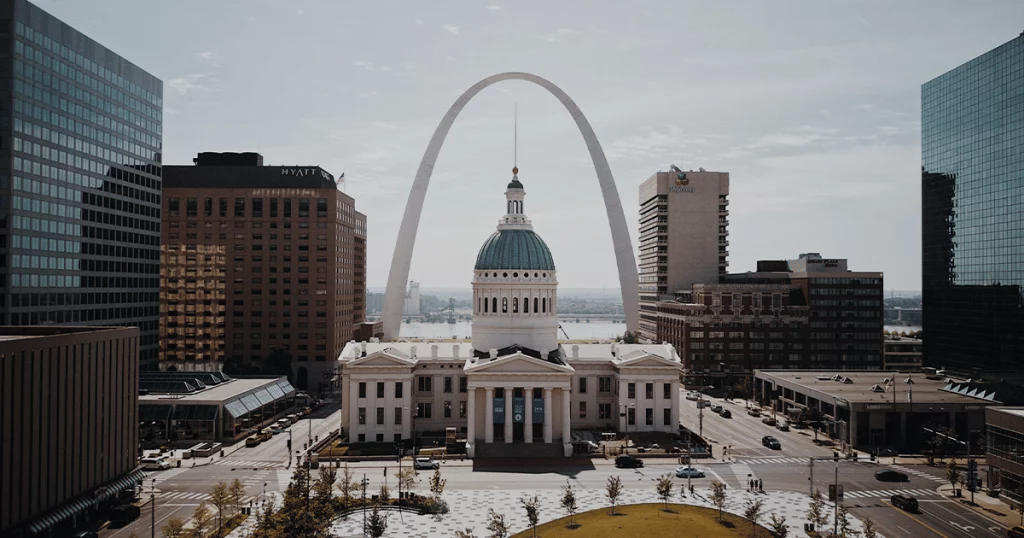The state Department of Health and Human Services (DHHS) has produced draft regulations for the adult-use market and started a public comment period just two days after Missouri voters supported marijuana legalization on the ballot. The DHHS will be solely responsible for handing out licenses and taking control of the regulations.
On November 8, Missouri voters approved Constitutional Amendment 3, which was on the ballot for last week’s midterm elections, ending the state’s prohibition of marijuana. With 99% of the votes counted as of Monday morning, more than one million people supported the amendment, giving it more than 53% of the vote.
To assist them in completing the regulations, officials are now urging Missourians to submit public comments over the next two weeks. The adopted amendment to the state constitution imposes a 6% tax on commercial cannabis sales. It makes it lawful for adults aged 21 and older to possess, consume, sell, and deliver cannabis for personal use. Provisions for the expungement of some marijuana-related offenses are also included in the amendment.
Only two days after the election, the DHHS unveiled its proposed adult-use cannabis laws and started a public comment period to submit input from interested parties. The opportunity for public comment will be available through Friday, November 25.
According to the language of Constitutional Amendment 3, the amendment takes effect 30 days after it is passed, or on December 8. The Director of DHHS’s medicinal marijuana division Lyndall Fraker stated that the organization started working on the proposed regulations before election day to fulfill the deadline if the ballot initiative was successful.
Licensing
According to the proposal, the Division of Cannabis Regulation of the health department would start accepting applications for recreational cannabis store licenses from the state’s current medical marijuana dispensaries on December 8. Following 60 days, when regulators must accept license requests, adult-use cannabis sales must start no later than February 2023. They expect to begin accepting applications for people who want to grow marijuana at home around that time.
But even earlier pot sales for recreational use could start in Missouri. As soon as the guidelines for comprehensive facilities are filed, officials anticipate converting licenses for medicinal marijuana shops before the 60-day deadline. Missouri will likely have one of the nation’s quickest and easiest transitions to adult-use sales due to the timing of the intended rollout.
When it comes to public comment, it’s almost a given that DHHS will get feedback on licensing regulations since there was a lot of criticism from confident supporters about how the ballot initiative didn’t explicitly stop regulators from setting a license cap on cannabis firms.
There are now only 192 licensees for combined medical cannabis and “comprehensive” dispensaries, which must be distributed equally throughout the state’s eight districts, according to the laws. A maximum number of 62 agricultural facilities and 88 manufacturers would be present. Starting in June 2023, the state would accept applications for a new category of up to 144 microbusiness licenses. Only a maximum of 48 will be distributed across the state during the first 270 days.
Given that there are now more than 200 medical marijuana shops in the state due to administrative appeals from specific firms, the 192-dispensary limit must be an error in the draft. The head of Amendment 3 advisory board and the coordinator for Missouri NORML, Dan Viets, stated that he would like to see DHHS develop a rule that places “no boundaries” on the number of prospective licensees.
He added that the governor should inform regulators that the Missouri legislature is attempting to approve legislation that would raise the limit on conventional retailer licenses. Despite license caps, Viets stated that Missourians are fortunate to have a state agency that, in contrast to many others, has adhered to the letter and spirit of the marijuana laws our state’s citizens have passed. However, he added that he would like to see DHHS expedite the process for allowing home cultivation.
The governor spoke out against the monopolization of Missouri’s marijuana market by out-of-state corporations before the election. He now has the chance to instruct his administration to open up licensing so that Missouri entrepreneurs can benefit.
According to the proposed regulations, converting a current medical marijuana dispensary into a hybrid retailer would cost $2,000 in application fees, a very modest entry barrier compared to licensing costs in other adult-use jurisdictions.

Emergency Reform Legislation
Other topics covered in the plan include adjustments to the current medicinal cannabis program and cultivation, packaging, facility security, and waste disposal.
While this was going on, Missouri Representative Ron Hicks filed a revised marijuana legalization bill in September in the hopes that the governor would extend a special session to allow discussion of the emergency reform legislation as a substitute for the now-passed cannabis ballot initiative. Since it was introduced and passed via committee earlier this year during the regular session, Hicks’s legislation has undergone a minor revision. One significant modification is including an emergency language that refers to the ballot initiative and makes the law effective immediately after passage.
However, Governor Mike Parson declared that he would not add marijuana legalization to the special session’s agenda, which would be devoted to tax relief and agricultural matters.

Missouri should be applauded for its efficiency regarding the licensing process compared to the slow and cumbersome nature of the medical marijuana legislation. However, the DHHS’ desire to fast-track the process and issue licenses sooner rather than later has led to many valid applicants being waitlisted or excluded entirely from receiving their licenses. Meanwhile, for the last two years, several inactive entities have been holding dormant licenses.
Enjoyed that first hit? Come chill with us every week at the Friday Sesh for a freshly packed bowl of the week’s best cannabis news!























